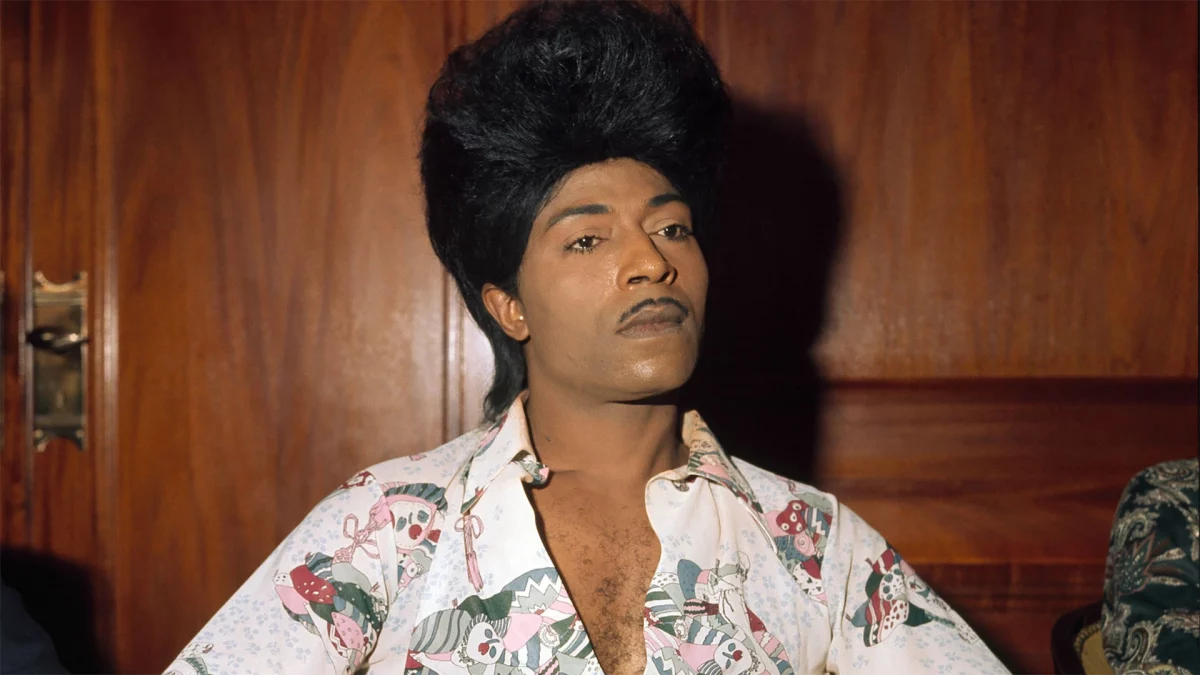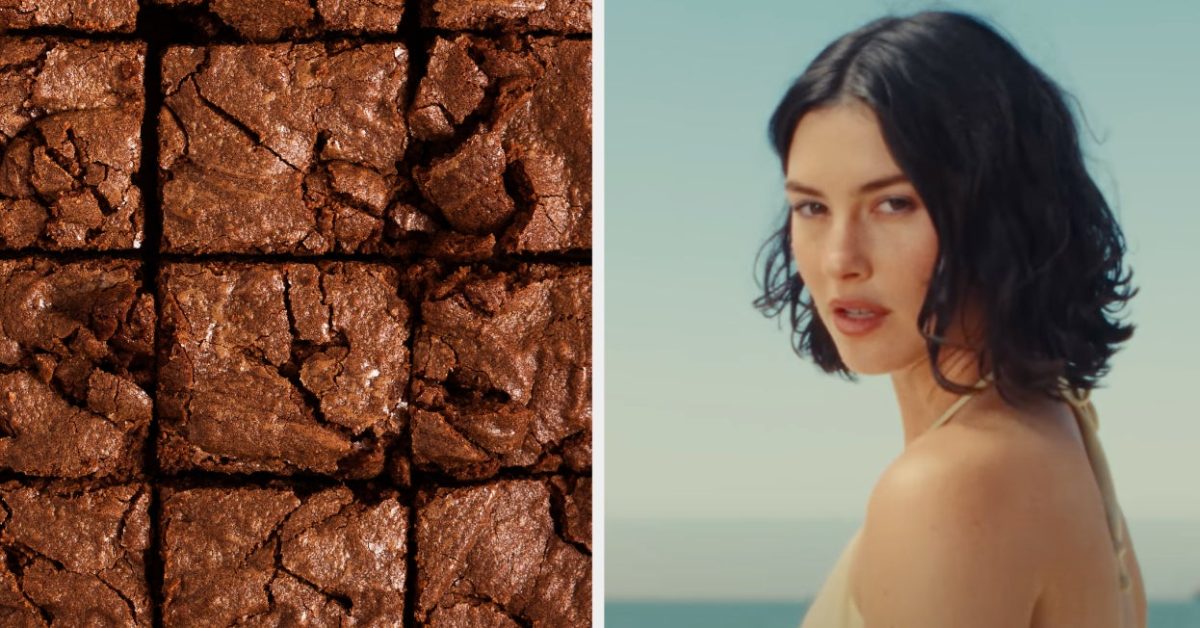
Lisa Cortés & Scholars Galore Thoughtfully Transcend The Rock Bio-Doc Clichés [Sundance]
Jan 28, 2023
“Little Richard: I Am Everything” opens with exactly the kind of pre-title sequence we’ve come to expect from a contemporary rock-history bio-doc, a fast and furious assemblage of archival imagery and iconic audio, bits and pieces reminding us of what this figure did, a snatch of a song, a flash of footage, a quick hit of a later legend assuring us of their greatness (“I’d never seen any of it before,” Mick Jagger assures us), bold proclamations (“He created the template for the rock and roll icon”), assembled with sleek grace. The cacophony of sound comes to an orgasmic conclusion; the title is revealed, the thesis is stated, and then, typically, the dates and names, and places commence.
But thankfully, beautifully, “Little Richard: I Am Everything” is not a typical rock-history bio-doc, and upon even a moment’s examination and reflection, it cannot be. How could anything about a figure as flamboyant, as contradictory, as chaotic as the man born in Macon, Georgia as Richard Wayne Penniman be anything of the kind? This was a man who spent his entire life bursting out of the tiny boxes he was supposed to confine himself in; no vanilla-ass Morgan Neville nonsense could possibly contain his story.
READ MORE: 25 Most Anticipated Films At The Sundance Film Festival
Furthermore, director Lisa Cortés is too shrewd and thoughtful a filmmaker to fall into those patterns anyway. That much is clear as soon as the title fades, and writer and professor Ashon Crawley appears to deliver this whopper: “Typically we speak of legacy in the laudatory. The legacy of Little Richard is… complex.” Yes indeed it is; this artist, this groundbreaker, this genius was a rich, difficult figure, full of contradictions and hypocrisies, and Cortés calls not upon the usual (customarily white, male, straight, cis) custodians of 20th century popular music history, instead inviting a host of piercingly probing ethnomusicologists, scholars, sociologists, and queer historians. They tell his story, and they tell it well.
And what a story it is, folding in the history and influence of the chitlin circuit, drag shows, and dirty blues; the breaking of boundaries and normalizing of “outrageous” behavior; how much of his persona and presence was borne of his Southern roots (and his queerness); why rock and roll was destined to happen, but could have only happened in that specific time and place; the kicking-and-screaming crossover of black music (and the comically lame but financially effective attempts to white it up); the shadiness of the music industry, and its exploitation of black artists; and, most insightfully, the influence of other artists on him – this bold and beautiful continuum of musical style, personal style, persona, and (most of all) deliciously swoony self-confidence.
Cortés also breaks from the norm with a trio of “Dreamscape Performances,” in which contemporary musicians interpret and dramatize key moments in his musical awakening (though not, and this is important, imitating him or re-enacting them). It’s a risky device, and it can get too precious – but it’s unique, a gutsy and disarming way of approaching this kind of material. Lead editor Nyneve Minnear and her team go appropriately buck-wild with inventive montage techniques – unlikely illustrations, for example, of the electricity of “Tutti Frutti,” a Big Bang moment for rock, for culture, for American life.
Sequences like that keep the proceedings from becoming too overly intellectualized, and even the (astute) breakdown of the nuts and bolts of his sound – a precise X-ray of what he did that was new, and how he repurposed what was in the atmosphere – pushes and punches the sheer manic joy of what he brought to wax and the airwaves. He wasn’t trafficking in the sorrowful blues or melancholy ballads that were all the rage in post-war America; his music was loud, boisterous, and searing, and everything about him, from the punch of his vibrato to the sinful way he moved his body, represented danger, and fun, and most of all, sex.
But that wasn’t all he did, and that’s not all Cortés does either. The ups and downs of this sui generis career are detailed, blow by blow: the sudden (and, often, suddenly aborted) religious awakenings and turnarounds, his “below rock bottom” period of addiction and desperation, the complication of his sexuality, his duality, and his self-loathing. This was a queer Black religious rock-and-roller, and the speed and ease with which he could change his beliefs, his personality, and his allegiances is blinding. “He was very very good at liberating other people through his example,” notes music historian Jason King. “He was not good at liberating himself.”
And, of course, as all of this was happening, he was defining another version of himself, further cultivating a comic style and personality that he trotted out for interviews and public appearances; Cortés rightfully tracks the evolution of this Little Richard as well, as he went from a court jester to a truth teller, how his tap-dance of kidding-on-the-square curdled into the frequent airings of public grievance – and good for him. Little Richard put this music on the map, gave it a sound and siren, and the way he was dismissed as a clown or a has-been was, as writer and sociologist Zandria Robinson puts it, less appropriation than “obliteration.”
As “Little Richard: I Am Everything” comes to its conclusion, Cortés and Minnear craft a razor-sharp kaleidoscope of images from popular music and popular culture, of figures whose outrageous behavior, take-no-prisoners artistry and blurring binaries announce, both figuratively and literally, “Everyone is defined by Little Richard.” It’s a bold assertion. But by then, they’ve made an awfully convincing case. [A-]
Follow along with all our coverage of the 2023 Sundance Film Festival.
Publisher: Source link
Eat Some Food And I’ll Recommend You A Gracie Abrams Song To Listen To
"That’s So True!"View Entire Post › Disclaimer: This story is auto-aggregated by a computer program and has not been created or edited by filmibee.Publisher: Source link
Dec 29, 2024
Emma Roberts Shares Rare Photos of Lookalike Son on His 4th Birthday
Emma Roberts is celebrating another year around the sun for her baby boy. The American Horror Story: Delicate actress marked her and Garrett Hedlund’s son Rhodes 4th birthday with a series of sweet pictures. Showcasing just how much little Rhodes…
Dec 29, 2024
It's Time For The Ultimate "Would You Rather": Hot Guys Vs. Christmas Food Edition
Decisions, decisions.View Entire Post › Disclaimer: This story is auto-aggregated by a computer program and has not been created or edited by filmibee.Publisher: Source link
Dec 28, 2024
Chris Hemsworth and Elsa Pataky Share Rare Photo with Their 3 Kids
Chris Hemsworth’s family Christmas is truly something to marvel over. In honor of the holiday season, Elsa Pataky shared a photo featuring her, her husband, their daughter India, 12, and twin boys Sasha and Tristan, 10. The Fast and Furious…
Dec 28, 2024











